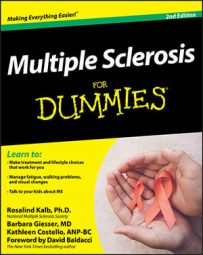Because of multiple sclerosis (MS), many couples suddenly find that doing joint activities isn't possible anymore. Imagine what happens when MS occurs in a couple who has always played tennis or golf together, or hiked or skied together. As you can probably guess, this change can be particularly challenging for those couples whose social lives have been built around these activities.
Generally, the scenario plays out in one of the following ways: Both partners stop the activity (and one feels sad and guilty while the other feels sad and resentful) or one partner stops the activity (and one feels sad and angry and the other feels guilty). We don’t think either of these options is a particularly good way to go. So, here are some alternative strategies:
-
Don’t assume that you know what your partner is feeling about this. Get the subject out in the open and figure out what’s going to work best for your relationship.
-
Brainstorm about options that may work for both of you. For example, here are some suggestions:
-
Substitute another activity that you both enjoy as much as the one that you’re now unable to do.
-
One partner continues the activity while the other comes along to enjoy the social part.
-
One partner continues the activity while the other finds an enjoyable alternative.
-
One partner engages in the activity on a less frequent basis, and you do something together the rest of the time.
-
Whatever option you choose, make sure that your together-time doesn’t get lost. Sharing time feeds and fuels your relationship, so do what you need to do to preserve some opportunities to enjoy time together (see the section “Making time for each other” earlier in the chapter for more details).
-
Maintain your social connections. If, for example, your social life has revolved around the tennis club, you need to figure out how to maintain connections with friends even if you aren’t playing as much tennis as you used to.
Maintaining social relationships can be a real challenge, particularly if your “friends” turn out to be more interested in your tennis game than you. Obviously people like that aren’t really your “friends,” so you’ll have to look around for ways to broaden your horizons with other people, such as friends from work, friends from your church or synagogue, or friends from neighborhood organizations.

